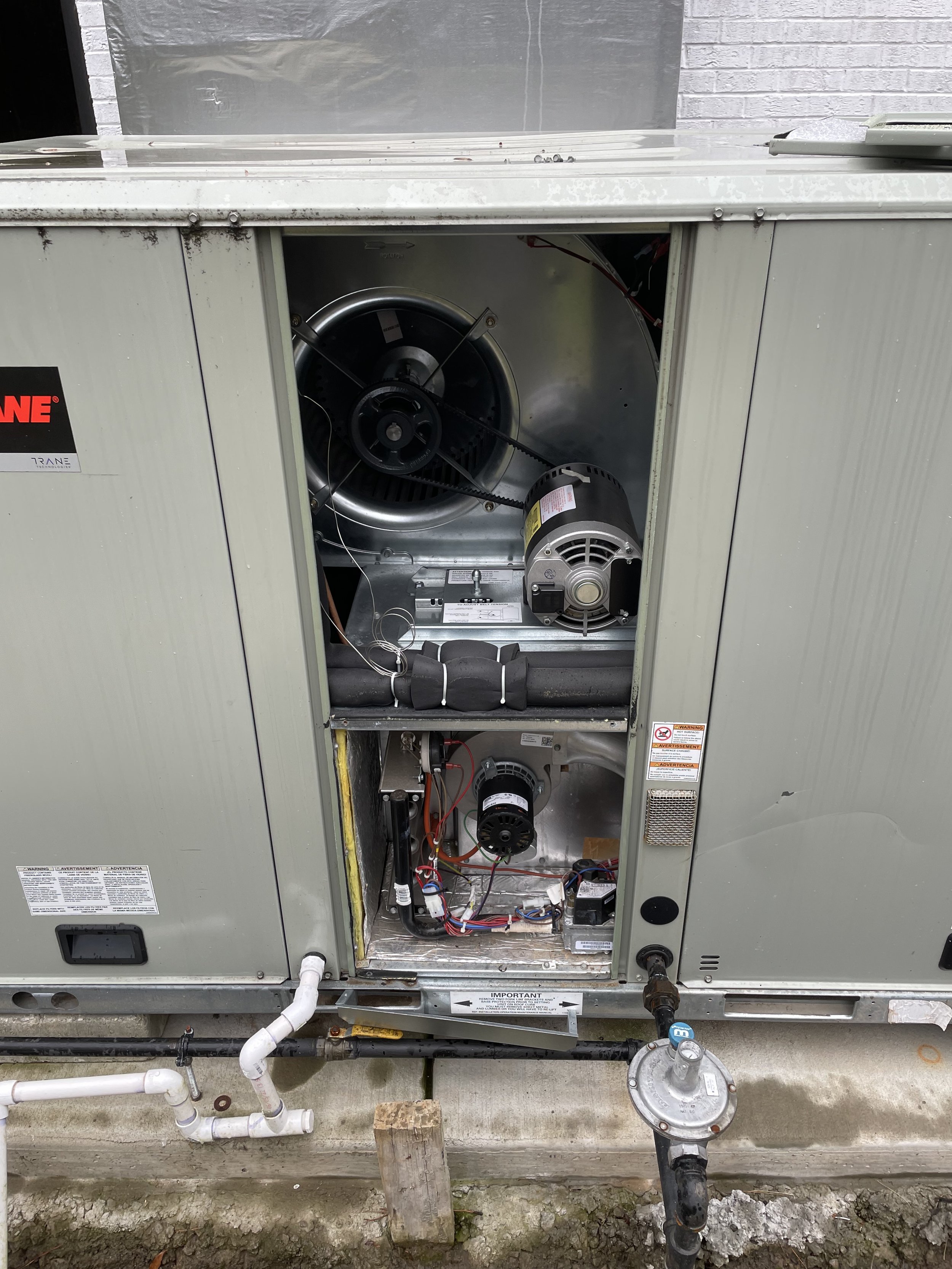Furnace Installation
the decision to replace your HVAC furnace depends on various factors, including the age, condition, efficiency, and performance of your existing unit, as well as your budget and long-term comfort goals. Consulting with a Ema Air Heating, Air Conditioning & Electrical professional can help you assess your options and determine the best course of action for your home. Call (919)592-7516 or Contact Us.
IS IT TIME?
It's time to consider replacing your HVAC furnace under several circumstances:
Age: If your furnace is over 15-20 years old, it may be nearing the end of its lifespan and becoming less efficient and reliable.
Frequent Repairs: If you find yourself needing frequent repairs or if the cost of repairs is approaching or exceeding the cost of a new furnace, it may be more cost-effective to replace the unit.
Increased Energy Bills: If your energy bills have been steadily increasing despite regular maintenance, it could indicate that your furnace is becoming less efficient and may need replacement.
Uneven Heating: If some rooms in your home are consistently colder than others, it could be a sign that your furnace is struggling to distribute heat evenly, indicating the need for a new unit.
Noisy Operation: If your furnace is making unusual noises such as banging, rattling, or squealing, it could indicate mechanical problems that may require replacement.
Visible Damage: If you notice visible signs of damage such as cracks, rust, or corrosion on your furnace, it may be a sign that the unit is deteriorating and needs to be replaced.
Safety Concerns: If your furnace is producing unusual odors, emitting carbon monoxide, or posing other safety risks, it's essential to replace it promptly to protect your health and safety.
Outdated Technology: If your furnace lacks modern features such as variable-speed blowers, programmable thermostats, or energy-efficient components, replacing it with a newer model can improve comfort and energy efficiency.
Home Renovations: If you're planning major renovations or additions to your home, it may be an opportune time to upgrade your HVAC system to accommodate the increased heating demands.
System Compatibility: If your furnace is incompatible with other HVAC components such as air conditioners or heat pumps, replacing it with a compatible unit can optimize system performance and efficiency.
you should be aware of several factors that contribute to the cost of a new furnace installation:
Furnace Type and Size: The type and size of the furnace you choose will affect the overall cost. High-efficiency furnaces or larger units may have a higher upfront cost but can result in lower energy bills over time.
Installation Complexity: The complexity of the installation, including factors such as accessibility, ductwork modifications, and labor requirements, can impact the installation cost.
Additional Components: Depending on your specific HVAC setup, additional components such as thermostats, air purifiers, or humidifiers may be required, adding to the overall cost.
Energy Efficiency Ratings: Furnaces with higher energy efficiency ratings (AFUE - Annual Fuel Utilization Efficiency) may have a higher initial cost but can provide long-term savings on energy bills.
Warranty Coverage: The length and extent of warranty coverage offered by the manufacturer and the installer can affect the overall cost. Extended warranties may provide added peace of mind but could increase the upfront cost.
Permitting and Codes: Obtaining permits and ensuring compliance with local building codes may incur additional costs, depending on the requirements in your area.
Installer Experience and Reputation: Hiring a reputable and experienced HVAC contractor may result in higher upfront costs but can provide assurance of quality installation and reliable service.
Maintenance and Service Plans: Consider the availability of maintenance and service plans offered by the installer, as these can provide ongoing support and maintenance to keep your furnace running efficiently.
Government Rebates and Incentives: Customers should inquire about available rebates, tax credits, or incentives for energy-efficient furnace installations, as these can help offset the upfront cost.
By understanding these factors and discussing them with Ema Air Heating, Air Conditioning & Electrical Support team, you can make informed decisions about the cost of a new furnace installation and ensure you choose the best option for your budget and needs.
The type of furnace you need depends on things like your comfort, budget, and home size. There are two main types: gas and electric. Gas furnaces are usually more efficient and heat homes faster. They're also cheaper to install, but they cost more upfront and have safety concerns. Electric furnaces may last longer and save money in the long run.
Ema Air Heating, Air Conditioning & Electrical technicians will help you choose the right furnace for you. We're here to answer your questions and give you personalized advice. We only suggest products we trust for our own homes.

